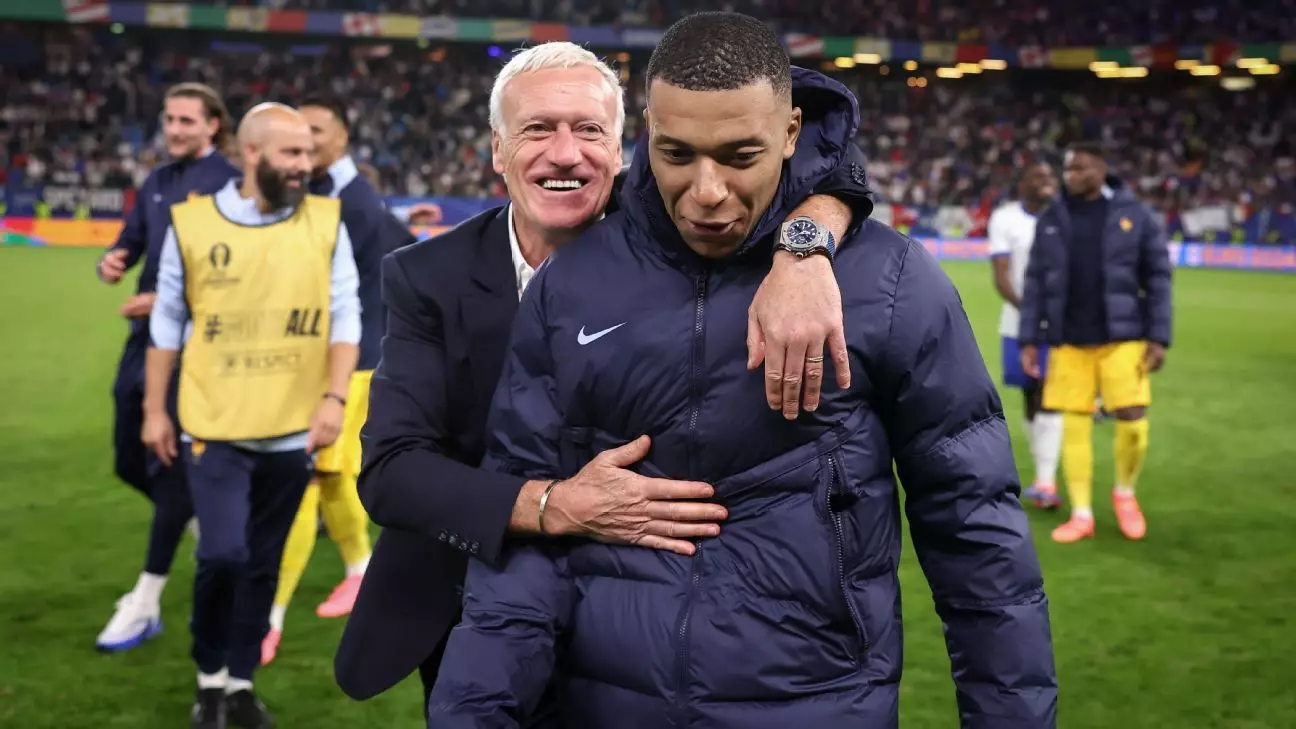The return of Kylian Mbappé to the French national team is one that has prompted significant excitement and speculation in the football community. After a notable absence during the Nations League fixtures in October and November, the 26-year-old striker is set to rejoin Les Bleus for their crucial quarterfinal encounter against Croatia in March. Head coach Didier Deschamps’ confirmation of Mbappé’s return underscores the critical role he plays for the team both on and off the pitch.
Mbappé has amassed 86 caps for the national team, demonstrating his importance as a key player in France’s international campaign. Although he faced a complicated personal phase earlier this season, which undoubtedly affected his performance and availability, his re-integration into the squad is seen as a pivotal moment for both the player and team dynamics. Deschamps’ reiteration of Mbappé’s commitment to the national team signals confidence in the forward’s ability to shake off past difficulties.
Reflecting on the challenges surrounding Mbappé’s prior absences, Deschamps highlighted the adjustments that come with transitioning to a new club, specifically his signing with Real Madrid. Such a move naturally brings about not only sporting pressures but personal ones as well. The head coach provided insight into how Mbappé faced multiple hurdles, including back pain and a broken nose, which may have impacted his mental and physical readiness for international fixtures.
Moreover, the hectic football calendar poses a threat to player health. As the number of matches rises, so does the risk of injuries. This reality has not gone unnoticed by Mbappé, who, despite previous setbacks, has expressed his unwavering dedication to contributing to the national squad. His journey through the ups and downs showcases the psychological toll elite sports can take and raises questions about athlete wellbeing in an ever-competitive environment.
Deschamps also touched on the implications of Mbappé’s absences on his leadership role within the team. The coach recognized that internal discussions are commonplace, but maintained that these moments do not diminish Mbappé’s position as a leader. Having established himself through both performance and presence, discussions around leadership are essential to fostering a healthy team environment, yet the coach remains optimistic that he can retain the captaincy moving forward.
In addressing the future of the national team, Deschamps, who will step down after the 2026 World Cup, acknowledged the speculation regarding his successor. While many fans and analysts point to Zinedine Zidane as a natural frontrunner for the managerial position, the coach highlighted the importance of respect and dialogue in determining the best path forward for the team. The respect displayed between these two iconic figures illustrates the stability and continuity needed for France as they navigate the challenges ahead.
Kylian Mbappé’s impending return to the French national team represents more than just the return of a talented player; it reflects the resilience needed amidst personal challenges and an evolving football landscape. As France gears up for its match against Croatia in the Nations League, the significance of Mbappé’s presence cannot be overstated. His journey signifies a path of recovery and leadership that will undoubtedly shape the future of French football for years to come.

